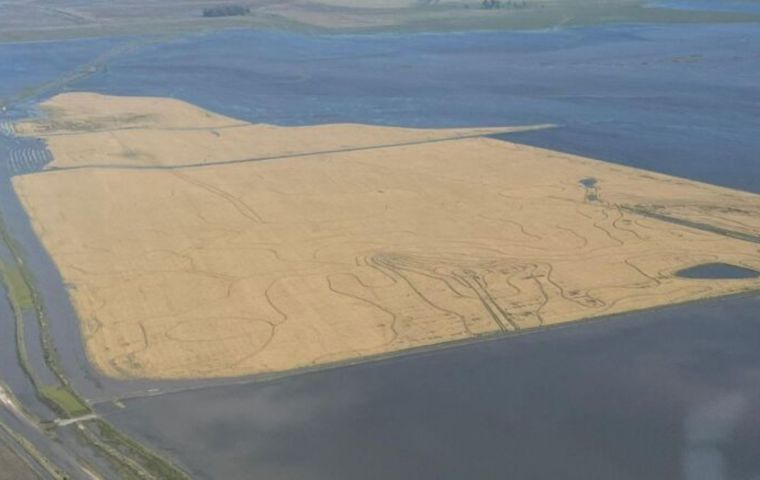MercoPress. South Atlantic News Agency
Agricultural emergency decreed in Uruguay
 Producers still need to measure their losses, Mattos explained
Producers still need to measure their losses, Mattos explained Uruguayan authorities have declared a 120-day agricultural emergency to deal with the consequences of severe floods hitting parts of the country. The weather phenomenon is a geographical continuation of the one that hit the Brazilian State of Rio Grande do Sul killing some 175 people with several dozens still unaccounted for.
There have been no fatalities so far in Uruguay but some evacuations have been necessary, it was also reported, as some 3,000 people were affected by the crisis.
Livestock, Agriculture, and Fisheries Minister Fernando Mattos signed the emergency decree this week amid discouraging weather forecasts. The measure means that resources from the Agricultural Emergency Fund can be allocated to agricultural, livestock, and dairy undertakings in the departments (provinces) of Rocha and Treinta y Tres, the use of was authorized to support the affected producers.
Although operations were returning to normal in both jurisdictions. 2,972 people were still displaced (2,546 self-evacuated and 426 evacuated) in the departments of Artigas, Cerro Largo, Paysandú, Salto, Soriano, and Tacuarembó.
In addition, producers are still to determine the extent of their losses. Mattos said that excess water generated problems for livestock and some crops. Hence, the government's measures “to mitigate the damage.”
“We have a lot of cattle on the street, it is raining right now in the affected departments. We have a lot of cattle that producers have to take to the roads or streets in high areas,” Mattos explained.
Creciente y desborde del Rio Olimar en Treinta y Tres luego de precipitaciones acumuladas de mas de 300mm en varios puntos de su cuenca durante tres dias consecutivos. Video: Matias Oxley. https://t.co/RdsUhmobF2 pic.twitter.com/Z7hT1f0ljc
— José A. Terra (@JoseATerra1) May 9, 2024
These animals have a notorious “weight loss” and “sanitary affectation”, said the minister who highlighted the importance of the Emergency Fund through this plight. Mattos also admitted that the floods had caused infrastructure damages that were still to be assessed.
He also reckoned that damages to rice crops would not be as bad as the ones for soybeans, which “is a crop less adapted to flood conditions,” in which case “there is a loss of quality, of sprouting because it does not tolerate excess moisture for a long time.”




Top Comments
Disclaimer & comment rulesCommenting for this story is now closed.
If you have a Facebook account, become a fan and comment on our Facebook Page!